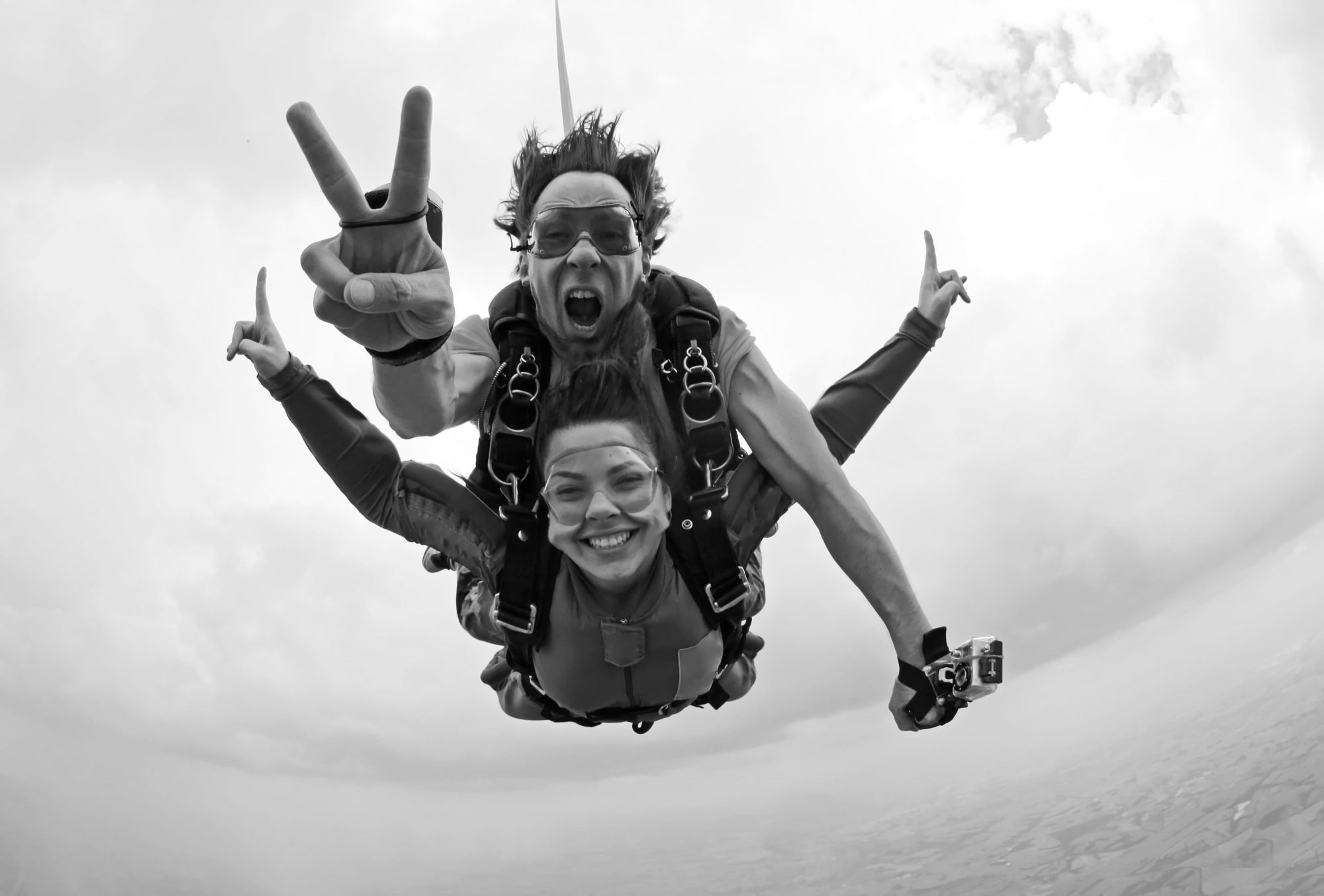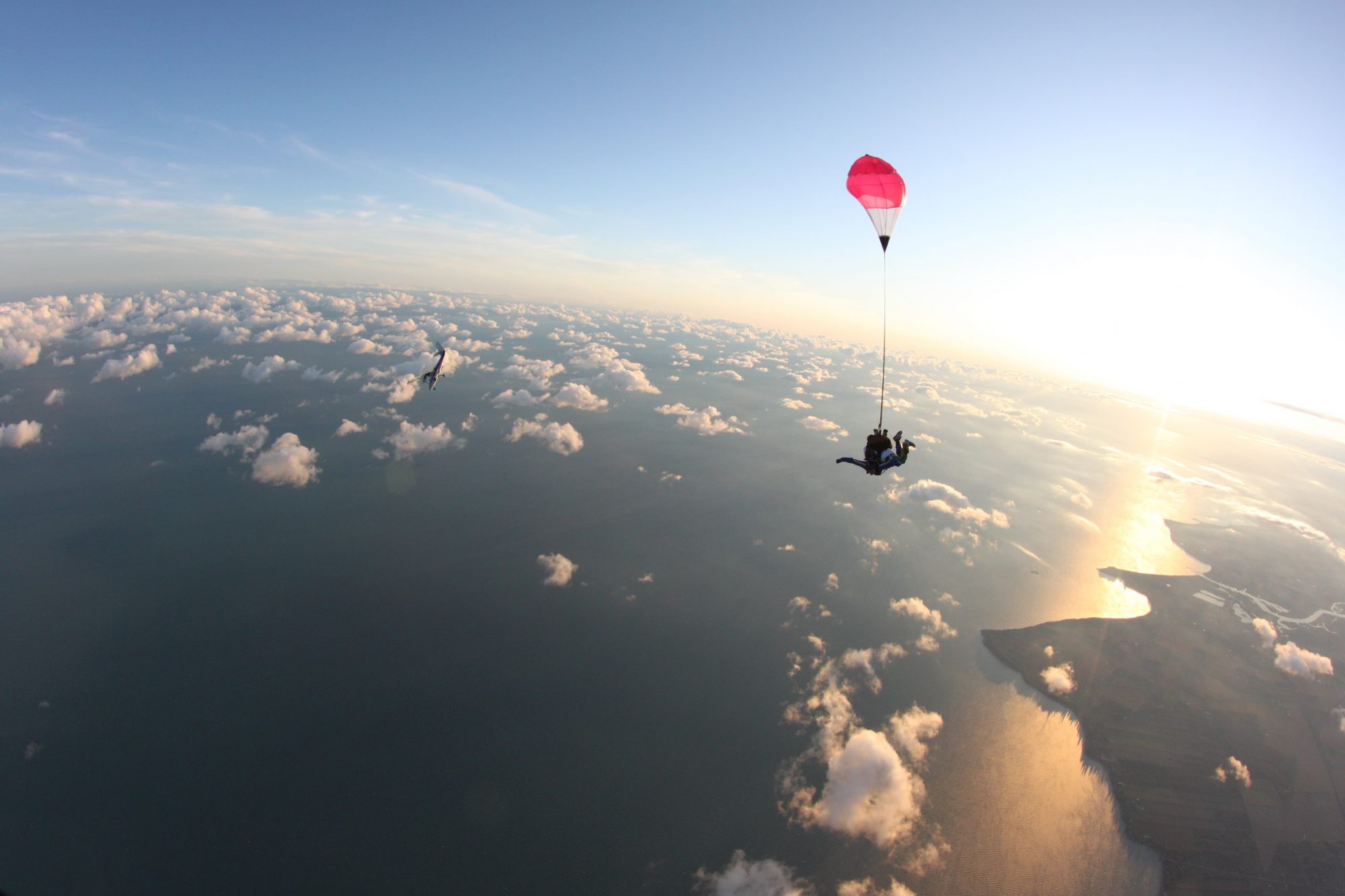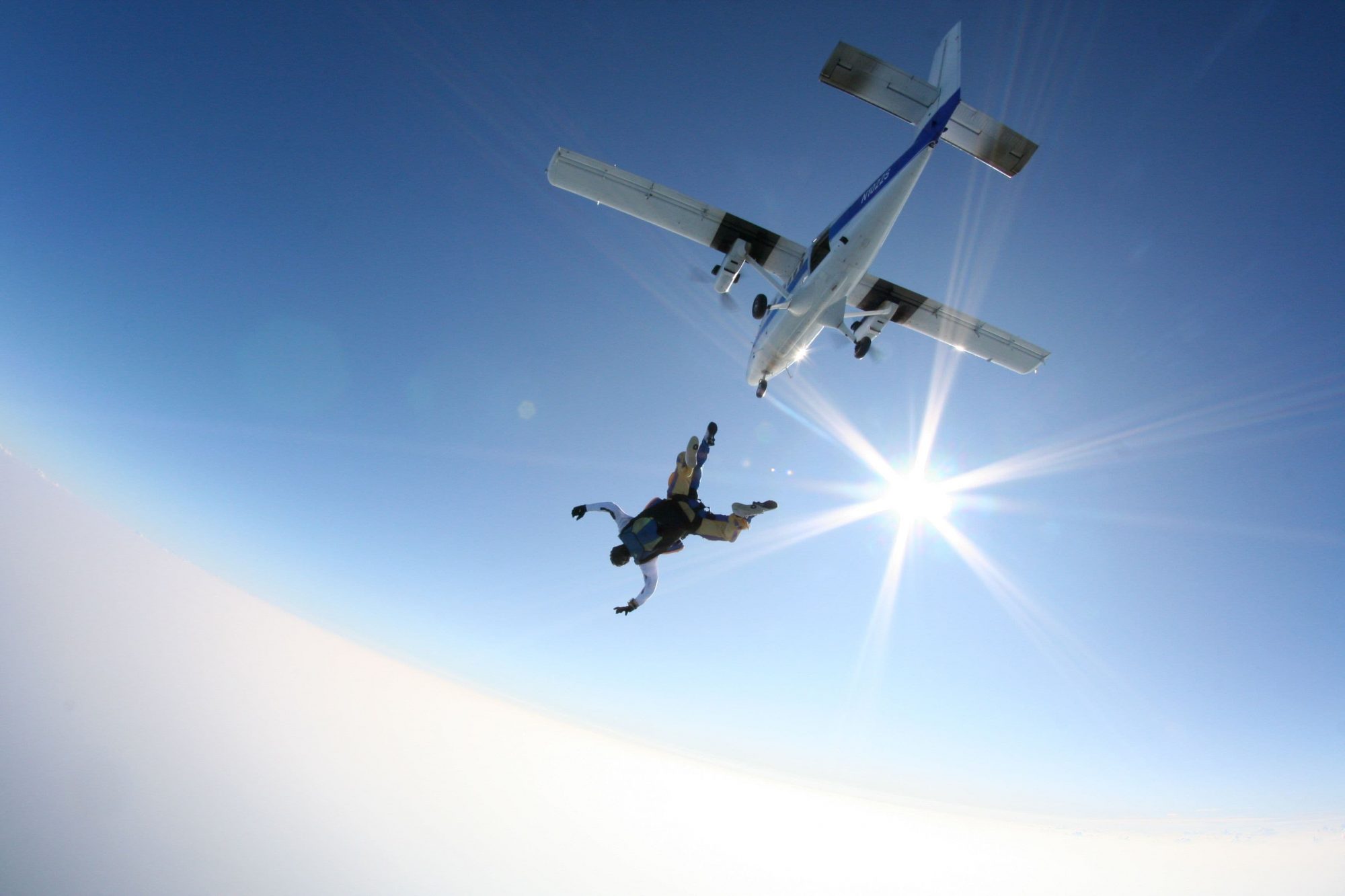
This isn’t a fun topic, but it needs to be had because frankly, it’s a problem for our industry: #MeToo. When I say problem, I don’t mean problem as in inconvenience, but rather a truth we have to come to terms with; our industry needs to be better about its treatment of women – skydivers and non-skydivers, alike.
This is a big topic, and not being a woman, I won’t pretend to have a complete understanding, but I know our industry can do better. As a former DZM, I’ve seen harassment first hand and it’s ugly.
I felt motivated to write this piece because I believe that someone’s first skydive is a pure experience that shouldn’t be tainted. Also, I’ve observed an increase in Google Reviews about women feeling uncomfortable with their instructors. This is a problem we need to talk about because making others feel uncomfortable is not only unacceptable, but it also holds our sport back from being all it should be.
I want to zero in on interactions that occur at many drop zones around the world – the “innocuous” conversations between instructors and female students. You know the ones – the comments laced with double entendre that can be construed one way… or another.
Let’s look at a real-world example.

Oversensitive or Lack of Empathy?
I recently assisted a client with the response to a negative review whereby the female student felt uncomfortable because the instructor verbalized after the jump that he’d “never skydived with someone so beautiful before.” This was one of several interactions that made her feel uncomfortable throughout the experience. Now, here’s the thing – anyone that knows the instructor knows that he meant no harm. He’s known for having a great personality, is full of joy and enjoys helping and making others feel good. Apparently, he says this to every female student and no one at the dropzone thought much of it (or didn’t feel the need to address it) because they know he is an all-around great guy.
But here are the key problems with this “innocent” type of interaction:
a). We don’t know the background or history of this woman or what she’s been through. If she’s routinely flirted with, or worse yet has been assaulted, then this experience that’s supposed to be life-changing can’t be enjoyed because she feels uncomfortable.
b). This interaction crosses the line of professionalism. Let’s not forget that our guests pay $200-plus dollars and we have the opportunity to give someone a great day and a lifelong memory. Anything we do that takes away from that is a shame. Few jobs in the world get to positively impact people’s lives, so let’s not take this responsibility for granted; let’s not taint the experience in any way.
Some may describe the student in the interaction above as someone who can’t take a joke or is uptight. Chances are, you’re a male who thinks that. We men often lack empathy because we haven’t walked in the shoes of women who have to fend off the unwanted advances from men regularly.
The Power of Online Reviews
While the issue of sexual innuendo with tandem students has been a problem since the invention of tandem, many women couldn’t do much because it’s a “he said, she said” type scenario.
With online reviews, women now have a voice and a strong one. Negative online reviews do affect the bottom line and unsurprisingly, we’re seeing the discontent being voiced. If you’re a DZO and never felt the need to address this issue in meetings, then here’s another reason to do so (though it shouldn’t really come to this to have to address it). The reviews left on a business’ Google My Business page receives a ton of exposure and reviews like the one below are bad.for.business.
This was one of the worst experiences I’ve ever had as I was sexually harassed by my instructor. From start to finish, he made various comments that made me feel uncomfortable. What should have been a great experience was completely spoiled – I loathed being connected to him the entire time. I had hoped for an awesome time, but all I wanted was for the experience to end.
Note: Language has been modified in order to not single out a single DZ for an issue that’s pervasive throughout the industry.

DropZone Culture
The culture of safety and professionalism begins at the top, and while I know DZOs want everyone to have a great experience it doesn’t happen by accident. In order to set expectations, they must be communicated clearly and often. The most consistent weak point I see at DZs is the lack of communication between management and staff. Often there is an existence of “us” (staff) and management (them). Part of this breakdown is due to communication or rather the lack of it. Too often, staff meetings are held at the beginning of the season and then only again after an incident occurs which is a defensive posture (and often a tension-filled meeting). To maintain a consistent product, more communication needs to happen in order to share the vision of what’s expected and allow for two-way feedback. Also, many of the meetings are focused on safety (as they should be), but discussions on standardizing procedures, customer service, and professionalism are often overlooked.
Whenever I visit a DZ, one of the first indicators I look for is how instructors walk with their students to the aircraft. Does each instructor hold onto the harness of the student, or is it not on the harness, or are they holding the harness at all or does each instructor do it differently? This is a basic procedure which should be the same across the board and if it’s not being followed in full view of everyone, then I begin to wonder what other procedures are being overlooked.
I’m not wanting to sound like the guy who’s wagging his finger, but I’ve been to enough DZ’s to know that we can do better especially when it comes to how we communicate with our guests.
STEPS TO ADDRESSING THE PROBLEM AT YOUR DZ
IDENTIFY WHAT YOU WANT
If any of the above resonates, then let’s talk about solutions. What do we do? If you’ve read any of my blogs, you know I’m a huge proponent of having DZO’s identify their values. Everyone has them, but it’s important to get them out on paper. The moment that happens, the ability to set a new course begins. As a DZO, it’s important to know what you believe and identifying those values sets the north star for the organization. Once there is clarity on what you want, then there is clarity on who you should hire, fire and what the day to day should look like. You are a step closer to being on the same page.
The takeaway: DZO’s: take the time to write out your values.
SET PROCEDURES
Secondly, it’s important to create a manual of procedures for each department. This sounds super tedious, but it’s completely necessary in order to deliver a consistent product and to have written documentation of how things should be done so everyone is operating in black and white with the full clarity of your expectations. Your procedures manual will be consistently evolving as different scenarios arise, but it should include areas of standardization from how we board, to how we exit and everything in between. Additionally, the procedures manual should also discuss topics of professionalism with a definition of what professionalism looks like – this includes how we communicate with our guests.
COMMUNICATE
Once values and procedures have been identified, the third step is communication. Imagine playing on a football team whereby team meetings only occurred at the beginning and middle of the season and when someone on the team egregiously screwed up – how well do you think that team would perform? Obviously, not so well. High performing teams need leadership to keep everyone focused on the big picture goal and to give feedback and correction when the team goes off course. Teams can’t have a sense of the end goal if they’re neither told what the end goal is nor told the procedures of how they will get there. Running a successful skydiving center goes beyond successfully executing safe skydives.
A NEW ERA
Some people lament that the “good ole days” of skydiving have past us as things are becoming more corporate and politically correct. Certainly, nearly everything has changed from the gear and type of jumping we’ve engaged in, to how we communicate with others. The double entendre speak that can be construed as harassment has no place in our sport. We are in the business of empowerment and happiness – nothing less.





